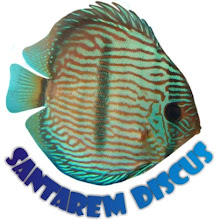Santarem Discus Lda has just finished another of its objectives. After several weeks of talks has just formally establish a partnership with the University of Las Palmas in Spain. Its biology department will study the genetic scientifically Discus wild diferenets collect in Amazonian rivers. In addition we established a partnership where 2 students of biology at the same university two weeks will come from our company internship between the months of September and Janairo 2011. In May an agreement between the University and the company will be signed in Las Palmas where I will give a lecture in the two largest universities in the Canary Islands
Santarem Discus Lda acaba de concretizar mais um dos seus objectivos. Após algumas semanas de conversações acaba de formalmente estabelecer uma parceria com a Universidade de Espanha em Las Palmas . O seu departamento de biologia vai estudar cientificamente genética dos Discus selvagens que colectamos nos diferenets rios amazonicos . Alem disso estabelecemos uma parceria aonde 2 alunos de biologia da mesma Universidade virão de quinzenalmente á nossa empresa estagiar entre os meses de Setembro e Janairo de 2011. Em Maio um protocolo entre a Universidade e a empresa será assinado em Las Palmas aonde darei uma palestra nas duas maiores universidades das Ilhas Canarias






